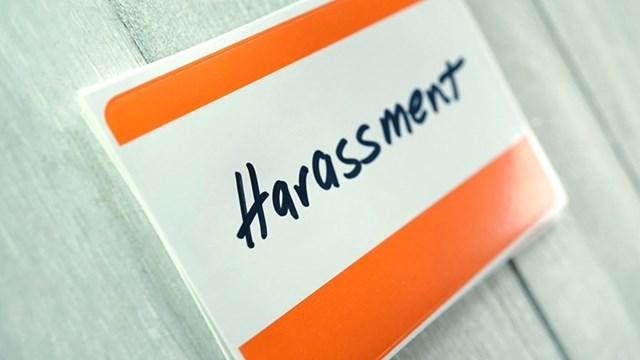Consider this scenario: You just found the perfect home for your family—equipped with beautifully manicured lawns and a great community of people. Unfortunately, the association bylaws state that your children can't play hockey with their friends on the blacktop, can't skateboard through the streets and can't—even for a moment—leave their bikes on the front lawn.
According to an article in Florida's St. Petersburg Times, this is exactly what happened to the Born family. Young Steven Born couldn't go outside to toss a foam football, play hockey or float his toy boat in the pond. His parents objected, but the condo association board at Pine Ridge at Lake Tarpon Village said the rules were clearly written in the association bylaws, and stood firm. Last year, the Born family moved—and according to the article, has considered a lawsuit.
Rough Rules
Whether or not the incident in Florida seems shocking to you depends on what side of the fence you sit. On one side, it might sound sensible for associations to curtail when and where children participate in activities—particularly in situations where their safety might be at stake, or for the comfort of non-kid-having residents. On the other side of the fence—especially if you have children—it just doesn't seem right to stop children from playing in an area where you are a paying tenant.
Regardless of your own position on the matter, the fact is that quite often, bylaws that state where and when children can play in a condo development or residential building are in violation of the Fair Housing Act and can lead to lawsuits and fines against the development or homeowners association.
As amended, Title VIII of the Civil Rights Act of 1968 (known more commonly as the Fair Housing Act) prohibits any discrimination based on race, color, national origin, religion, sex, familial status or handicap or disability in the sale, rental, and financing of dwellings and in other housing-related transactions. Among other circumstances, "familial status" includes families with children under the age of 18 living with parents or legal custodians, pregnant women, and people securing custody of children under the age of 18.
"I think a lot of associations have rules like these, but most people either think they are legal—or happen to like them—and nobody ever says anything," says David Byrne, an attorney with the law firm of Stark & Stark in Lawrenceville.
Byrne explains that whether or not the bylaws are illegal depends largely on the wording. For example, if an HOA's bylaws state that a one-year old child cannot swim alone in the pool, its probably okay to assume that most one-year-old children cannot swim. However, the association cannot have a rule that states that children under 18 can't swim alone. The rule is discriminatory, because in many cases young children can swim very well, while there are some older adults who cannot swim well. Ability to swim unsupervised is not dependent on age alone.
Another example of an illegal bylaw might be; "Children's bikes cannot be left outside." The bylaw should address both children's and adult bicycles, or it is considered discriminatory.
While an association must watch the wording on certain bylaws to prevent legal problems such as these, they can still take measures to control the actual use of the HOA's common areas—as long as the laws are not discriminatory.
"For example," says Wendell Smith, an attorney with Greenbaum, Rowe, Smith & Davis, LLP in Woodbridge, "the association laws can say that the common property is only to be used for walking or for park benches," but not for jogging or sports activities. "But if it's the individual's property, the association cannot control that. On the other hand, however, if it's an aesthetic law like, 'bikes can't be left on the lawn,' than that's okay—as long as it's all bikes."
Safe, Fair, and Legal
Pat Cinelli, property manager of The Chanticleer Community Association, Inc. in Cherry Hill makes certain that the bylaws of her association protect the safety of the residents—especially the children—but that they are also legal.
"We don't have lot of children in the community, but we don't discourage new families from moving in," says Cinelli, who explains that the association was originally marketed to empty-nesters and young professionals in the mid-1980s.
"We don't have a playground or a tot lot, and we do have a tennis court, but it's just for tennis," Cinelli continues. "There is a clubhouse with an exercise room, but you need to be 18 years old to use the equipment—and that's because it's a safety issue. The children can skateboard, but it's limited to between 9 a.m. and 8 p.m. and they can't do it on the street."
Rules governing children's activities aren't just limited to individual associations. There's a federal aspect to the issue as well, says Smith. According to Smith, while the Fair Housing Act states that families cannot be denied the housing of their choice simply because they have children, in a few circumstances, the act allows that it is legal to exclude families with children from renting or purchasing an apartment or house.
"Housing complexes specifically designed for older persons can exclude families with children if everyone in the building is over 62 years old—or if 80 percent of the units have at least one occupant over age 55 and the community has significant facilities and services to meet the needs of older persons," says Smith. It is also legal to prevent children from living in a building if the building is part of a federal or state program that provides housing for elderly people.
If a building or development is not specifically or officially intended for seniors or retirees, however, denying residence to families with kids can cause serious problems. One example of illegal discrimination occurred in 2001, when fair housing discrimination complaints were filed against an apartment complex in downtown Louisville, Kentucky. It was discovered that a Yellow Pages ad for the apartments included the words "Adult Living Downtown." A Fair Housing Council staff member called the building staff, asking if the building was a seniors-only complex, and was told that it was not. It was discovered that the development was illegally turning away prospective tenants with children under the age of 18: after charges were brought, the case cost the building $21,000.
The Price of Discrimination
Penalties for violating the Fair Housing Act can be stiff. "Penalties can include statutory penalties, money awarded and payment of legal fees," says Byrne, adding that over the past few years, there have been several cases concerning what's known as "familial discrimination."
In 2002, a Buffalo, New York complex was fined $6,500 after preventing families from renting second floor apartments. In June, 2003, the U.S. District Court of Los Angeles ordered a California property owner to pay $23,064 in damages to the Housing Rights Center and a prospective tenant because of discriminatory remarks he made during the showing of his property—the property owner indicated that the prospective tenant's children would be prohibited from playing outside in the front yard.
In February, 2003, Baldwin Management Company, a condominium association and property management company located in Pico Rivera, California, was ordered to pay $130,000 in compensatory damages and attorneys' fees to the Housing Rights Center and seven plaintiff-families who alleged discrimination based upon familial status. The court found that the company had indeed discriminated against families with children when tenants' children were forbidden from playing in the grass-covered common areas and balconies of a 56-unit townhouse complex.
Last year, the Justice Department announced the $120,000 settlement of a race and familial status discrimination lawsuit against the owners and managers of twelve Albuquerque, New Mexico apartment complexes. According to the complaint, the defendants allegedly refused to rent an apartment to a man with a small child, and wrongfully evicted a white tenant and his African-American fiancé because of her race.
The government probes any allegations of illegal or discriminatory housing rules or practices through the use of fair housing "testers"—individuals who pose as potential renters for purposes of gathering information about possible discriminatory practices in the rental or purchase of apartments.
To prevent such problems, association boards should consider having an attorney review their bylaws for any discrepancies and possible questionable regulations. It's far easier to rewrite or amend proposed rules and regulations than it is to settle a lawsuit and deal with the negative PR brought on by a protracted discrimination case.
If you are a tenant or shareholder—or prospective buyer or renter—and believe that you have been discriminated against, contact the Office of Fair Housing and Equal Opportunity; Department of Housing and Urban Development, Room 5204, 451 Seventh St. SW, Washington, DC 20410-2000 or visit www.hud.gov.
Lisa Iannucci is a freelance writer living in Poughkeepsie, New York.






Comments
Leave a Comment